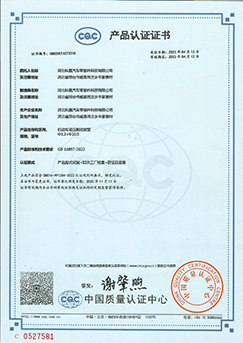Exploring the Benefits and Features of E10 Resistant Fuel Hoses for Enhanced Performance and Durability
Agosti . 08, 2024 05:00 Back to list
Exploring the Benefits and Features of E10 Resistant Fuel Hoses for Enhanced Performance and Durability
Understanding E10 Resistant Fuel Hose A Necessity for Modern Vehicles
As the automotive industry evolves, so too do the materials used in vehicle construction, including fuel hoses. One significant advancement in this area is the development of E10 resistant fuel hoses. With the increasing popularity of E10 gasoline—fuel that contains up to 10% ethanol—vehicle manufacturers and owners are more concerned than ever about the compatibility of fuel systems with this type of fuel.
What is E10 Fuel?
E10 fuel, composed of 90% gasoline and 10% ethanol, has been widely adopted as a more environmentally friendly alternative to pure gasoline. Ethanol, being a renewable resource derived mostly from corn and sugarcane, helps to reduce greenhouse gas emissions when burned in internal combustion engines. However, it also poses challenges for traditional fuel systems and components that were not designed to handle ethanol's unique properties.
Ethanol has a higher affinity for moisture compared to gasoline, leading to several potential issues. It can attract water, which may result in phase separation if too much water accumulates. This separation can lead to corrosion within the fuel system and the degradation of rubber and plastic components, particularly in hoses that are not specifically designed for E10 compatibility.
The Importance of E10 Resistant Fuel Hose
Given the drawbacks associated with E10 fuel, the importance of using E10 resistant fuel hoses cannot be overstated. These hoses are designed to withstand the chemical properties of ethanol-based fuels, ensuring the longevity and reliability of a vehicle’s fuel system. Here are a few critical reasons why using E10 resistant fuel hoses is essential
e10 resistant fuel hose

1. Durability and Longevity E10 resistant hoses are constructed with materials that resist the corrosive effects of ethanol. They maintain their integrity over time, reducing the risk of leaks and premature wear. This durability translates to increased safety for vehicle owners, as fuel leaks can lead to hazardous conditions.
2. Preventing Fuel Contamination Traditional fuel hoses may degrade when exposed to E10, potentially releasing particles into the fuel system. These particles can clog fuel filters, injectors, and carburetors, resulting in decreased performance and costly repairs. E10 resistant hoses are designed to prevent this kind of contamination, ensuring the fuel system operates smoothly.
3. Compliance with Standards Many automotive manufacturers now specify the use of E10 compatible parts, and utilizing resistant fuel hoses helps meet these new standards. This compliance is not just about performance; it also has implications for warranties and long-term vehicle maintenance.
4. Enhanced Performance Using E10 resistant fuel hoses can lead to improved vehicle performance. By preventing issues associated with fuel degradation, these hoses help ensure optimal fuel flow and combustion efficiency, contributing to better engine performance and fuel economy.
Conclusion
As E10 fuel becomes more common, the need for robust components that can handle its properties grows increasingly urgent. E10 resistant fuel hoses represent a crucial advancement in automotive technology, enabling vehicle owners to adapt to changing fuel standards without compromising safety or performance. Choosing the right fuel hoses is not just about compliance; it’s an investment in the vehicle's future and a commitment to environmental sustainability. By understanding the significance of E10 resistant fuel hoses, vehicle owners can protect their investments and contribute to a cleaner, more efficient automotive landscape.
